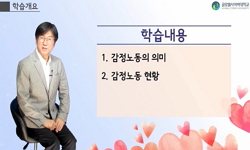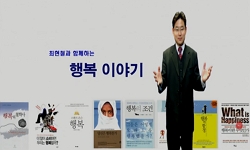Purpose : The purpose of this study was to investigate the mediating effect of resilience on the relationship between emotional labor and happiness of clinical nurses. Methods : A descriptive, cross-sectional study was conducted with 224 clinical nur...
http://chineseinput.net/에서 pinyin(병음)방식으로 중국어를 변환할 수 있습니다.
변환된 중국어를 복사하여 사용하시면 됩니다.
- 中文 을 입력하시려면 zhongwen을 입력하시고 space를누르시면됩니다.
- 北京 을 입력하시려면 beijing을 입력하시고 space를 누르시면 됩니다.
임상간호사의 감정노동과 행복감의 관계에서 회복탄력성의 매개효과 = The Mediating effect of Resilience on the Relationship between Emotional Labor and Happiness of Clinical Nurses
한글로보기https://www.riss.kr/link?id=T14439407
- 저자
-
발행사항
대구 : 경북대학교 교육대학원, 2017
-
학위논문사항
학위논문(석사) -- 경북대학교 교육대학원 , 간호교육전공 , 2017. 2
-
발행연도
2017
-
작성언어
한국어
- 주제어
-
DDC
610.73069 판사항(23)
-
발행국(도시)
대구
-
형태사항
ⅱ, 37 p. : 삽화 ; 26 cm
-
일반주기명
지도교수: 최현경
참고문헌 수록 - 소장기관
-
0
상세조회 -
0
다운로드
부가정보
다국어 초록 (Multilingual Abstract)
Methods : A descriptive, cross-sectional study was conducted with 224 clinical nurses who have one or more years of clinical experiences from four general hospitals in D city in Korea. Data collected from the survey using self-reported questionnaires were analyzed by descriptive statistics, Pearson’s correlation coefficients, and multiple regression analysis using IBM SPSS statistics 21.0 program.
Results : There were statistically significant correlations among variables; a negative correlation between happiness and emotional labor, a positive correlation between happiness and resilience, and a negative correlation between emotional labor and resilience. Meanwhile, resilience had a partial mediating effect on the relationship between emotional labor and happiness. That is, resilience can play an important role between emotional labor and happiness of clinical nurses as a mediator.
Conclusion: Considering the findings of this study, developing programs that can improve resilience of clinical nurses who experience emotional labor are needed to increase their level of happiness.
Purpose : The purpose of this study was to investigate the mediating effect of resilience on the relationship between emotional labor and happiness of clinical nurses.
Methods : A descriptive, cross-sectional study was conducted with 224 clinical nurses who have one or more years of clinical experiences from four general hospitals in D city in Korea. Data collected from the survey using self-reported questionnaires were analyzed by descriptive statistics, Pearson’s correlation coefficients, and multiple regression analysis using IBM SPSS statistics 21.0 program.
Results : There were statistically significant correlations among variables; a negative correlation between happiness and emotional labor, a positive correlation between happiness and resilience, and a negative correlation between emotional labor and resilience. Meanwhile, resilience had a partial mediating effect on the relationship between emotional labor and happiness. That is, resilience can play an important role between emotional labor and happiness of clinical nurses as a mediator.
Conclusion: Considering the findings of this study, developing programs that can improve resilience of clinical nurses who experience emotional labor are needed to increase their level of happiness.
목차 (Table of Contents)
- 서 론 ··········································································· 1
- 연구의 필요성 ································································ 1
- 연구목적 ······································································ 3
- 용어정의 ······································································ 4
- 서 론 ··········································································· 1
- 연구의 필요성 ································································ 1
- 연구목적 ······································································ 3
- 용어정의 ······································································ 4
- 문헌고찰 ·······································································5
- 행복감 ········································································· 5
- 감정노동 ······································································ 6
- 회복탄력성 ··································································· 7
- 연구방법 ······································································· 9
- 연구설계 ······································································ 9
- 연구대상 ······································································ 9
- 연구도구 ······································································ 10
- 자료수집 ······································································ 11
- 자료분석 ······································································ 11
- 연구결과 ······································································· 13
- 대상자의 일반적 특성 ······················································ 13
- 대상자의 감정노동, 회복탄력성, 행복감의 정도 ··············· 15
- 감정노동, 회복탄력성, 행복감의 상관관계 ···························· 17
- 회복탄력성 매개효과 ······················································· 19
- 논 의 ··········································································· 21
- 결론 및 제언 ································································· 23
- 참고문헌 ······································································· 24
- Abstract ······································································· 31
- 부 록 ········································································ 33












